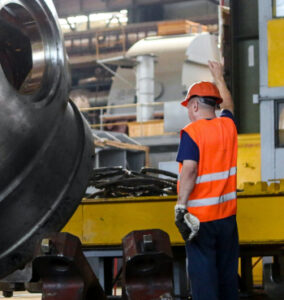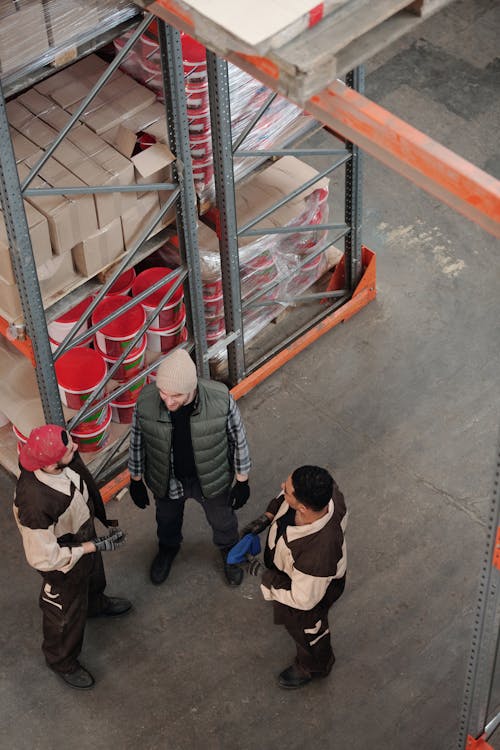Trucking Automation Company Uses Blockchain for Efficiency
The Role of Blockchain in Enhancing Efficiency and Transparency in Trucking Automation
Blockchain’s function in Trucking Automation Company and Compliance
According to the MC Logistics.io team of experienced logistics and trucking automation company professionals, Among the modern trends emerging in the context of the constantly changing world economy the logistics and supply chain sector is under growing pressure concerning its operation transparency, definite logistic performance, and security. The existing supply chain management system tends to deal with challenges like poor transparency of data, challenges facing tracking the physical movements of the goods and the stories facing fraudulent activities in the supply chain. However, blockchain has become the new kind of solution for these challenges, which will help in changing and improving all the aspects of supply chain management by enhancing the level of transparency, time, and the level of trust.

Enhancing Transparency Through Blockchain
Basically, the blockchain is an open-sourced distributed ledger system commonly implemented through a network of computers where each transaction or “block” has been duplicated in the entire chain. These transactions are highly secure and can produce an unchangeable list by virtue of all transactions in the supply chain right from the procurement of raw materials to the distribution of finished products to the consumers. This is necessary to confirm the origin and quality of goods and has become a weighted issue in the contemporary global economy sectors like counteracting counterfeit medicines, watches, clothes, and foodstuffs.
Getting More Efficient with Smart Contracts
Smart contracts are among the most important ideas implemented in the sphere of blockchain. Smart contracts are automating contracts with pre established parameters embedded into Bitcoin’s code. Self-executing contract enabled the execution of contract terms and compliance to the letter through digital code, hence eliminating the middleman’s services as well as lowering the cost of transactions. This paper reveals that smart contracts can enhance the transactions involving payment, customs clearance and compliance checking in logistics and other related industries as to shorten the time taken for the transactions.
Applications to the Field of Trucking and Automation
Trucking and logistics are some of the sectors that can particularly benefit from blockchain technology seeing that it is all about efficiency and reliability. Suppose a company that delivers transportation automation services sets out to use the blockchain to integrate the automation of fleet management. Hence, through the use of blockchain, digital records on vehicle maintenance and history, driver archives, and real-time fuel consumption among others are actionable. This level of automatisation not only increases productivity but also decreases expenses connected with the manual inputs and documentations.
Creating Passive Income Opportunities
Blockchain technology also opens up new avenues for passive income within the trucking industry. For instance, turnkey trucking programs powered by blockchain allow investors to participate in automated trucking businesses without the need for direct involvement in driving. Investors can earn passive income through investments in automated trucking fleets, where smart contracts ensure transparent profit-sharing mechanisms and automated revenue distribution.
Addressing Insurance and Compliance
Apart from the various gains in efficiency, the use of blockchain solves issues of regulations and insurance by the trucking firms. Using the blockchain for storing and checking the compliance documents like driver licenses, insurances, and vehicle registrations, will help the companies to simplify compliance audits and confirm that they are following all the required guidelines. Since it minimizes any loophole of non compliance while at the same time increases and rebuilds the confidence of stakeholders in the supply chain ecosystem.
Blockchain and Its Future Role in Logistics
Looking at the future development of the blockchain, applying it to logistics will create a new picture in the logistics industry. Beyond these typically associated with transparency and efficiency, they include real-time analysis of data, predictive analysis, and protection against disruption of the supply chain. It does this not only through the simultaneous optimisation of resources and stocks but also through the integration of partners within the supply chain by the exchange of secure and compatible data.
Conclusion
Blockchain is therefore a key break from tradition as far as handling of supply chain logistics is concerned given its massive potential in as much as concerns efficiency, security and elasticity. Trucking companies can of course gain benefits from the application of the solutions with the help of block chain; some of the benefits are more effective processes, less expenses, and happy customers . Furthermore, it is necessary to underline the chances of making a passive income from automated trucking, as well as turnkey solutions and programs based on blockchain. In the years ahead, the role of blockchain remains central and inherent to almost every revolution needed for the future of logistics and supply chain management, efficient innovation and solutions to sustainable growth.





